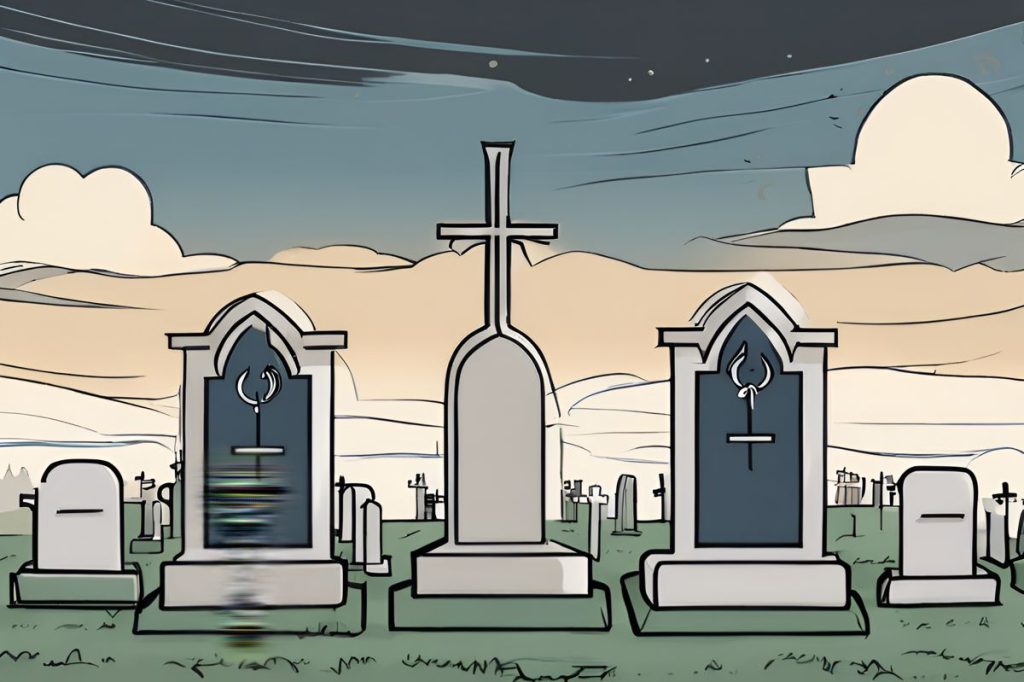In war-torn Gaza, Palestinian Christians face challenges in burying their loved ones, leading to interfaith solidarity as they use Muslim cemeteries due to access issues. This poignant act showcases the enduring human spirit and universal values that transcend religious divides, even amidst the ravages of conflict.
How are interfaith relations displayed in Gaza amidst conflict?
Amidst conflict in Gaza, Palestinian Christians have had to bury their loved ones in Muslim cemeteries due to access issues. This act of interfaith solidarity, where cemetery workers respect all individuals regardless of faith, highlights the enduring human spirit and the universal values that connect us all, even in times of war.
A Display of Unity in Times of War
In the strife-torn regions of Gaza, the echoes of war bring not only destruction but also stories of humanity and solidarity. The conflict between Israel and Hamas has escalated to such an extent that it has disrupted the most somber of human rituals: the act of burying the dead. With passages to Christian cemeteries in northern Gaza cut off, Palestinian Christians have found themselves in a position where they must lay their loved ones to rest in Muslim burial grounds.
Ihsan al-Natour, who has worked at Tal al-Sultan cemetery for a decade, witnessed this unprecedented occurrence. He recalls the profound impact of seeing a Christian man, Hani Suheil Abu Dawood, being laid to rest among Muslim graves due to the perils of reaching the Christian cemetery. The situation underscores the relentless impact of the conflict, which, according to the Gaza health ministry, has taken over 33,000 lives in just six months, with the vast majority being civilians.
The Landscape of Loss
Gaza has borne the brunt of relentless military bombardment, transforming much of the once-bustling coastal enclave into layers of rubble and dust. Infrastructure, including hospitals, has been severely damaged, leaving the medical establishments overwhelmed and unable to handle the continuous flow of casualties. The threat of famine looms as another specter of sorrow in an already tragic landscape, adding to the profound suffering of the population.
For those mourning their dead, the perilous journey to bid farewell at the graveside is fraught with the risk of bombardment. Israel’s strict control over movement, particularly in the northern parts of Gaza, has left many families with no choice but to seek alternatives, leading to the interment of Christians in Muslim cemeteries—a poignant testament to the desperation engendered by war.
An Undiscriminating Compassion
Despite the turmoil, stories of compassion have emerged, transcending the boundaries of faith. The workers at Tal al-Sultan cemetery, like al-Natour, are emblematic of this kindness, showing respect for all, regardless of religious affiliation. Al-Natour’s statement that they “don’t discriminate between Muslims or Christians” in the cemetery speaks volumes about the innate human capacity for empathy even amidst the backdrop of conflict.
The interfaith cooperation seen in Gaza is not new; it has been part of the fabric of the community. Al-Natour’s duty of care extends beyond religious lines, seeing the essence of what it means to be human: “We respect human beings and appreciate humanity, and we love every person on earth.” Such sentiments offer a glimmer of hope in the darkest of times, reminding us that even in the shadow of war, the light of human decency can still shine through.
The Toll of Conflict Continues
As the war persists, the death toll in Palestine climbs each day, and the Tal al-Sultan cemetery anticipates receiving more souls laid to rest far from their intended final resting places. The conflict, which reignited with an incursion by Hamas gunmen into Israel, has led to a heavy-handed response and a cycle of violence that shows no signs of abating.
The narrative of Christians being buried in Muslim cemeteries is a stark illustration of the chaos wrought by war, but it also serves as a poignant example of the enduring human spirit. In the midst of devastation, the shared experiences of grief and the act of coming together to honor the departed—no matter the faith—reflect the universal values that connect us all.
How are interfaith relations displayed in Gaza amidst conflict?
Amidst conflict in Gaza, Palestinian Christians have had to bury their loved ones in Muslim cemeteries due to access issues. This act of interfaith solidarity, where cemetery workers respect all individuals regardless of faith, highlights the enduring human spirit and the universal values that connect us all, even in times of war.
What challenges do Palestinian Christians face in burying their loved ones in Gaza?
Palestinian Christians in Gaza face challenges in burying their loved ones due to access issues to Christian cemeteries, disrupted by the ongoing conflict. This has led to the poignant act of using Muslim cemeteries, showcasing interfaith solidarity amidst adversity.
How has the conflict in Gaza impacted the population and burial practices?
The conflict in Gaza has resulted in widespread destruction, loss of lives, damaged infrastructure, and a looming threat of famine. The disruption of traditional burial practices due to restricted access to Christian cemeteries has forced Palestinian Christians to bury their loved ones in Muslim cemeteries, highlighting the ongoing challenges faced by the population.
What acts of compassion and unity have been observed amidst the conflict in Gaza?
Despite the turmoil and devastation in Gaza, acts of compassion and unity have emerged, transcending religious divides. Cemetery workers at Tal al-Sultan cemetery, like Ihsan al-Natour, have shown respect for all individuals, regardless of their faith, underscoring the innate human capacity for empathy even in the midst of conflict. Such gestures of solidarity offer a glimmer of hope in difficult times.

